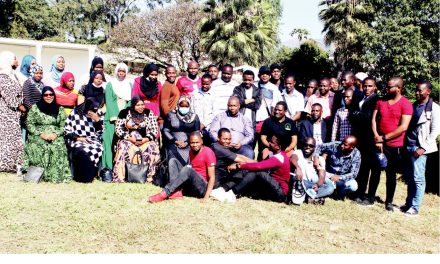
Government Delays Access to Information Bill

The battle to have a law on access to information began in 2003. This was a realisation that sincethe advent of democracy 1994, Malawi had no policy that would give Malawians an opportunity to access public information. Malawi’s constitution gives its citizens a right to access information. Section 37 states that: “Subject to any act of parliament, every person shall have the right of access all the information held by the state or any of its organs at any level of government in so far as such information is required for the exercise of his right.” Despite the provision of this section, Malawihas no law on access to information to allow those inauthority to release information proactively or by request. This indicates that citizens cannot access information held by the government or its organs if such information is required.
It was realised therefore, that there was a need to have the law that would allow citizens to easily access public information, and government on the other side, to release such information if need arises. The process began with a campaign led by MISA Malawi Chapter, an organization established to fight for media freedom. MISA Malawi together with other stakeholders including Civil Society Organisations started lobbying government to have the policy in place to clear the passage for the bill and later the law. In January 2014, during the reign of President Dr Joyce Banda, government adopted the Access to Information (ATI) policy. MISA Malawi Chapter through its statement applauded the then government for the adoption, saying it would give way for the establishment of the law.
Subsequently, the DPP government in continuation with its non ending promises, Minister of Information, Tourism and Culture Kondwani Nankhumwa has again promised to expedite the process leading to the enactment of the Access to Information (ATI) Bill. Nankhumwa made the promise during MISA Malawi Annual Awards ceremony at the Grand Palace Hotel in Mzuzu on Saturday, May 2, 2015.
Nankhumwa was quoted saying, “I am pleased to inform you that processes for finalising the Access to Information Bill will be expedited to ensure that, all things being equal, the proposed piece of legislation is made available for consideration in the National Assembly soon,”
Nankhumwa also promised that government would review the Table Mountain Declaration, as promised in the Democratic Progressive Party (DPP) manifesto. Nankhumwa said government is committed to ensuring a free and independent press and the right to free speech and access to information by every citizen.
However, commentators have criticised the DPP government for playing games with Malawians. Nankhumwa’s remarks have been heard for several times, Every time he is asked of the status regarding the Bill he keeps on changing tunes. This is a betrayal to Malawians and it is unfortunate that parliamentarians could as well not help in this regard.
Where are we now
Since the Access to Information policy was adopted by government, what is required now is to have the Access to Information bill debated in parliament before it is passed into law. The bill was drafted by different stakeholders led by MISA Malawi Chapter and government. Consultative meetings were made before the final draft. Immediately after the Access to Information policy was adopted by government.
Is ATI a media tool?
During the final national consultative meeting for the drafting of the Access to information bill in Lilongwe, the director for Information in the ministry of Information Issac Cheka Ziba said the bill is not only for journalists but the general public as well. Ziba further said that the bill shall provide the general public with opportunity to acquire any information on issues of national importance. “Be reminded that the overall goal of the National Access to Information Policy is to have a public that is well informed to participate in national development and governance. We therefore see that the legislation is for every Malawian citizen,” He said
Does Malawi need the bill?
Vital information required by the members of the general public to actively participate in national development is held by government and other public institutions. In the absence of the Access to information policy and law to direct the access to public information, the citizenry would be unable to democratically contribute to developmental activities. Therefore, the National Access to Information bill aims at governing the process of acquiring public information and to allow the citizens demand their right to access information held by Government and other bodies. What is required is to lobby for the enactment of the bill and make awareness that the public has a right to demand information from public institutions as provided for in the constitution of the Republic of Malawi and that public officers have the obligation to grant information when requested.
In the absence of such an act, it is very difficult for the public to enquire certain information that is not obvious in the eyes of many. For example, with such a bill in place, citizens will have a right to ask and scrutinise full information on the use of local development and constituency funds respectively.
If passed into law, the Ministry responsible for Information and Civic Education will be responsible for the provision of policy direction on the management and administration of access to public information held by Government or other agencies. The Ministry will also coordinate the implementation of the Policy as well as monitor and review policy implementation. An independent Information Commission will be established with an aim of regulating the transparent provision or denial of access to public information. The Ministry responsible for Local Government shall facilitate implementation of Access to Information Policy among local authorities.
With the said law in place, it would be easier for the public to demand access to information and thus ensuring accountability to those entrusted with public resources.






























